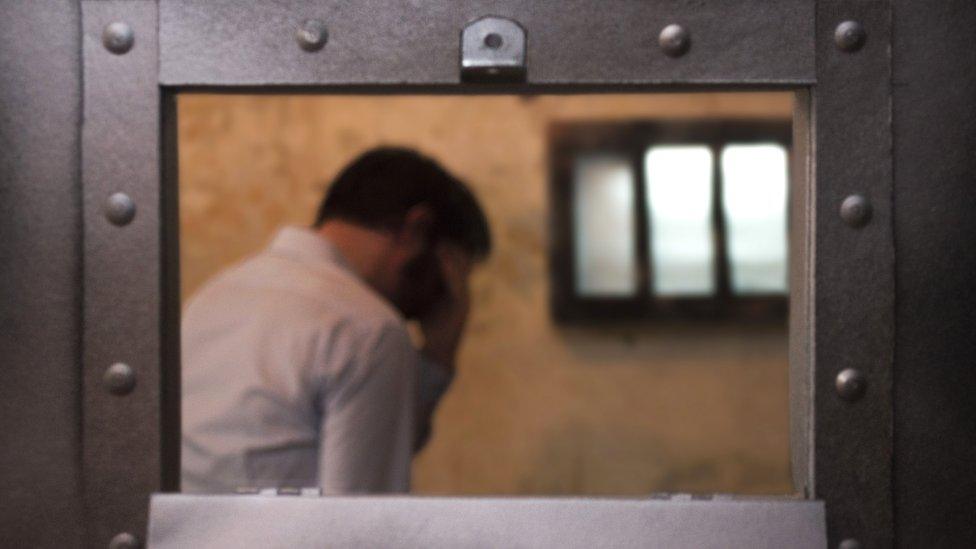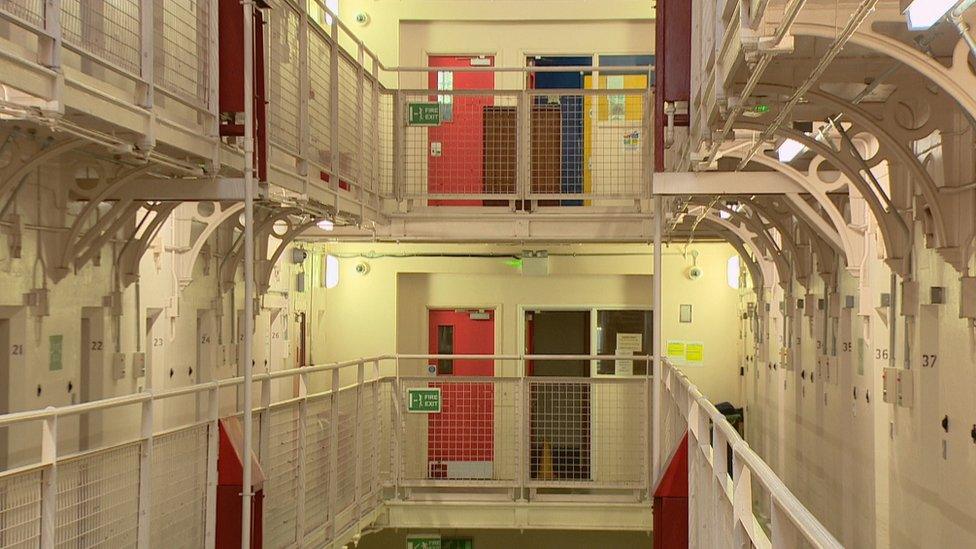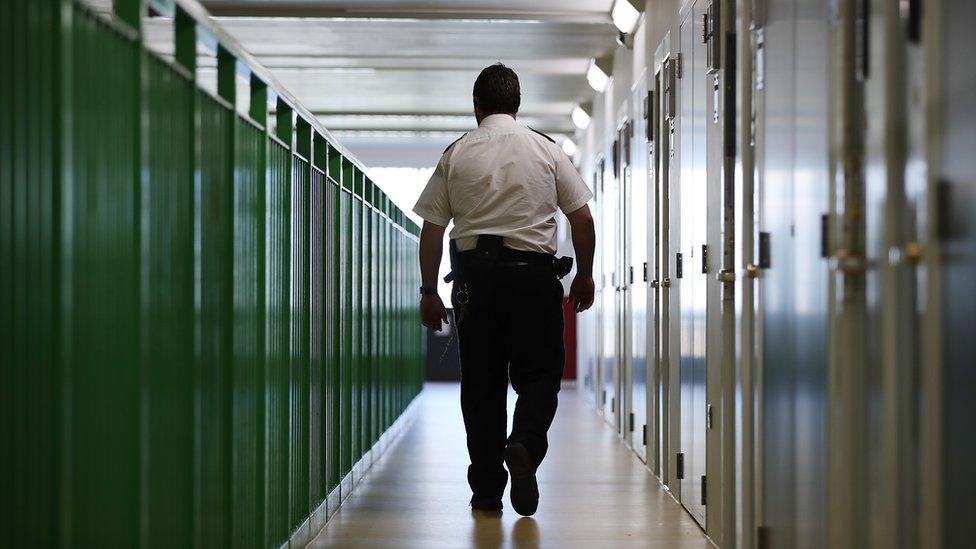Urgent action call over prisoners' mental health
- Published

Many prison officers felt there was inadequate support available for inmates with mental health problems
A watchdog has called for urgent action to improve mental health treatment and services in Scotland's jails.
A Mental Welfare Commission investigation found staff wanted more training, and many felt support for inmates was inadequate.
Smuggled psychoactive drugs and their impact on mental health were also found to be a big concern.
More than three quarters of inmates interviewed reported having experienced some kind of substance abuse.
The Mental Welfare Commission (MWC) visited Scotland's 15 prisons a decade after previously making recommendations for change.
Responsibility for mental health services in prison transferred from the Scottish Prison Service to NHS Scotland in 2011 but the investigation found little evidence of improvement.
Among the findings were:
77% of prison staff interviewed had concerns about mental health support for inmates in their prison
Concerns included waiting times for treatment, poor communication and insufficient therapy
There were gaps in the screening and assessment processes for new inmates
69% of staff were "extremely concerned" about the use of novel psychoactive substances (NPS) in prisons
One staff member was quoted saying "there seems to be no way of stopping" such drugs coming into prison.
"The worry is of people overdosing, especially where you have people who have never used drugs before being offered it ... seems only a matter of time before there's a fatality," the staff member continued.
In December, the Scottish government allowed photocopying of inmates' mail to try to stop such substances being smuggled using drug-impregnated letters.
About three quarters of 107 prisoners interviewed said they had experienced alcohol or drug abuse issues either currently or in the past, but more than a third said they had not been offered addiction support services while in jail.
The report found there were often delays in delivering medications to prisoners, sometimes taking days or weeks.
Some inmates said medications prescribed by community GPs for conditions like anxiety or sleep disorders were subsequently vetoed by prison doctors.
The report found that prisoners with acute mental health problems were often segregated but did not receive the types of support they might expect in the community.
One inmate with very severe problems had been been in a segregated unit for 45 weeks, and was still waiting for a transfer to psychiatric hospital.

The report calls for a "joined up" strategy for improving mental health services in Scotland's jails
Suzanne McGuinness, executive director of social work at MWC, said a "joined up approach" to improving the system was a "matter or urgency".
"Scotland has one of the highest rates of imprisonment in western Europe and the majority of people arriving at prison reception have a history of mental ill health," she said.
"Suicides in prison remain a serious concern in Scotland.
"While we found some good practice, our overwhelming impression was of a prison population which is under-served and under-resourced."
The report makes nine recommendations, including more training and a review of the use of segregation for inmates experiencing acute mental illness.
A spokesperson for the Scottish Prison Service said: "Our frontline prison officers and NHS staff work extremely hard every day to provide appropriate care and support to those in our care.
"SPS will give careful consideration to all the recommendations and is committed to working collaboratively with NHS partners and the Scottish government."
Related topics
- Published12 January 2022

- Published11 October 2019
